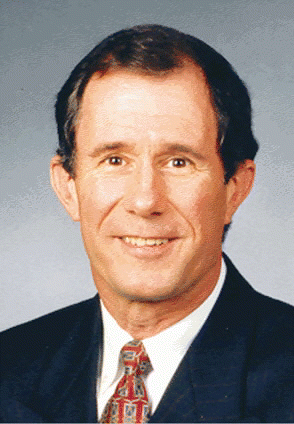Robert H Miller, MD, MBA, is Executive Director of the American Board of Otolaryngology and Chair of the Editorial Board of ENT Today.
Explore This Issue
December 2008This issue’s Special Report is on quality improvement, an increasingly important health care issue not only in this country, but also in many other countries around the world. I don’t think anyone can argue with the fact that the US health care system is, overall, more advanced in technology, capabilities, and capacity than that of any other country in the world, a fact of which we American physicians should be very proud. However, there is always room for improvement.
I think sometimes physicians are overly sensitive to the media reports about thousands of patients dying each year because of medical errors, because they take it personally. Physicians feel very strongly about their patients’ well-being and we view ourselves as the captains of the ship, so when we hear reports of these medical misadventures, we inherently feel challenged or threatened. We may think our practices are being criticized unfairly when we are doing our best in what are difficult times. This reaction is both a good thing and a bad thing.
Let’s start with the bad thing. If we feel personally attacked, then we may assume a defensive posture because not only are the malpractice lawyers saying we are the villains, but now the health care quality improvement experts are against us, too. Taking this attitude is, in some ways, only natural, but it is incorrect and nonproductive. We could become insular and not be an active participant in the improvement process. Or worse, we could reflexively fight needed changes because they might interfere with what is the usual practice to which we have become accustomed.
 It is one thing to say ‘let’s not do this again,’ but another thing entirely to look systematically into how the mistake occurred and change procedures to ensure it does not happen again.
It is one thing to say ‘let’s not do this again,’ but another thing entirely to look systematically into how the mistake occurred and change procedures to ensure it does not happen again.The Right Response
I think the appropriate response (the good thing) is that we do care about our patients; we should ask How can we, as a part of the health care team, improve the system?
At one level, we can work within our offices and hospitals, reviewing systems and processes for areas of improvement. Most of the fatal errors identified in various reports are not physician-based, but result from problems with the systems in place in our hospitals and offices. Medication errors (incorrect transcription of an order, errors in administered dosage, drug interactions) are among the most frequently cited causes of problems in hospitals.
For the most part, we physicians are not the source of the errors. However, we can work with our colleagues (nurses, pharmacists, and others) to improve the medication dispensing/administration systems not only at the hospital, but in our offices as well. I doubt that there are any of us who have not experienced a drug administration error in our office. It is one thing to say let’s not do this again, but another thing entirely to look systematically into how the mistake occurred and change procedures to ensure it does not happen again. Although your individual action might not affect a large number of patients, if we all took these sorts of actions, we would have a very large impact just in the ambulatory setting.
Another level of participation is through the various otolaryngology organizations in the national arena. This month’s Special Report details the various quality improvement activities in which the American Academy of Otolaryngology-Head and Neck Surgery (based in Alexandria, VA) is involved. Among its many activities, the Academy represents the specialty to the myriad national organizations involved in quality improvement. In addition, the Academy involves many of its members in various committees and task forces that develop otolaryngology-specific measures of quality. The Academy seeks participation in these projects, so if you have interest, I suggest you contact the Academy for more information.
In my position with the American Board of Otolaryngology (based in Houston), I frequently give talks on Maintenance of Certification (MOC), a quality improvement program in which all otolaryngologists certified in 2002 and thereafter are required to participate. In my closing slide, I discuss the rationale for MOC. I point out that in otolaryngology, there are very few bad apples, doctors who are beyond remediation. The vast majority of otolaryngologists practice good medicine on most patients most of the time.
Like that of the MOC, the quality movement’s goal is to move our practices up a notch or two, so that we practice excellent medicine on all our patients all the time. Perhaps this is an unachievable, idealistic goal, but the closer we get to it, the better it will be for our patients and for us because, in the end, isn’t doing the best for our patients why we went into medicine in the first place?
I suppose another aspect of these changes that may make some wary of participating is the question, Will they work? Some changes will, and some will not, but waiting for the perfect solution is not an option. We physicians are in a unique position to participate in if not lead many of these initiatives. The health care quality improvement movement is moving forward very rapidly. The leaders of the various organizations desperately want physician involvement, but if we drag our feet too much, they will move on without us, in which case they will be driving the train, and we will be in the caboose.
©2008 The Triological Society
Leave a Reply